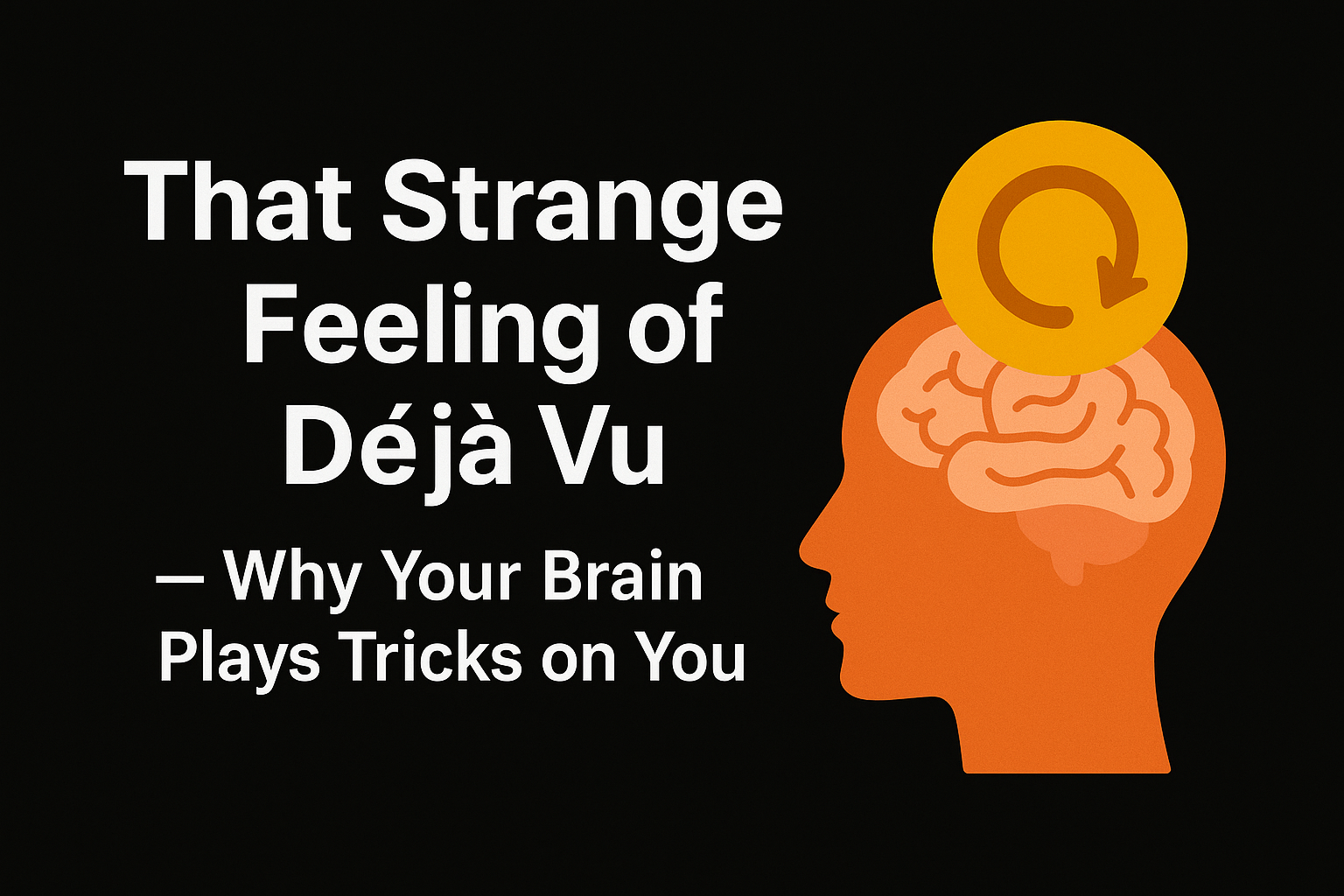The Moment You’ve “Been Here Before”
Have you ever walked into a room, met someone new, or heard a conversation—and felt a sudden, intense familiarity, like you’ve lived the exact moment before? That odd, fleeting feeling is called déjà vu, French for “already seen.”
Almost everyone experiences it at some point. It can be brief and harmless, but sometimes it leaves you wondering why your brain feels like it’s playing tricks on you.
What Really Happens in Your Brain
Déjà vu is a glitch in the brain’s memory and recognition system. Your temporal lobe (responsible for memory) and hippocampus (which processes new experiences) misfire and mix up past and present.
The result? You feel certain a moment is familiar—even when it isn’t. Your brain creates a false sense of “already knowing” that leaves you briefly disoriented.
Common Déjà Vu Experiences
-
Conversations: You feel like you already know what someone will say.
-
New places: A friend’s new home or a street in a new city feels oddly familiar.
-
Everyday situations: Standing in line, riding public transport, or walking through a park may trigger the sensation.
It’s that split-second clash between memory and perception that makes the moment so strange.
Why Some People Experience It More Often
Researchers have found that certain traits or habits can make déjà vu more common:
-
High education levels
-
Frequent traveling
-
Strong dream recall
While these factors don’t cause déjà vu, they might increase your brain’s “misfire rate” when processing new experiences.
When Déjà Vu Could Be a Sign to Pay Attention
Most déjà vu moments are harmless. But occasionally, they can be linked to underlying conditions:
-
Sleep deprivation or fatigue—lack of rest disrupts brain recognition.
-
Stress or anxiety—High stress can affect how your brain interprets new experiences.
-
Migraines—Some migraine sufferers experience déjà vu as part of their symptoms.
-
Neurological conditions—Temporal lobe epilepsy or certain forms of dementia can make déjà vu more frequent.
Should You Worry?
If déjà vu happens rarely, there’s no reason to be concerned. But if episodes are frequent, prolonged, or accompanied by symptoms like confusion, weakness, or seizures, it’s wise to consult a neurologist.
Your brain is usually just playing a harmless trick, but persistent déjà vu might be a clue that something deeper is happening.
The Takeaway
Déjà vu is one of the brain’s most fascinating quirks—a momentary illusion where past and present blur. It reminds us that memory isn’t always perfect, and our brains are constantly interpreting and misinterpreting the world around us.
Next time it happens, pause, smile, and marvel at your brain’s incredible—if occasionally confusing—wiring.







Leave a Comment - (Links Acceptable)